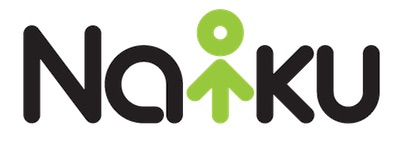
Naiku Blog: News, White Papers, and Case Studies
-
Common Core State Standards
Read MoreThis is a guest blog from Takeshi Terada. Takeshi’s interests are in educational policy and assessment. He is particularly interested in data-driven educational evaluation, policy-making & analysis, and decision-making systems in K-12 education that apply both qualitative and quantitative research methodologies, mostly using assessment test scores. Takeshi is a graduate of the University of Minnesota […]
-
Focus on Effectiveness
Read MoreAs we move toward the start of the 2011-12 school year educators across the country are looking to improve their skills. Last week I attended a conference in Moorhead Minnesota titled: “Teaching & Learning: Focus on Effectiveness”. This daylong conference was attended by over 250 educators from the Fargo – Moorhead area. It included the […]
-
Importance of Affective Assessments
Read MoreWhen one thinks of educational assessment, one often thinks of cognitive measures. We teach students important concepts, how to problem solve, and how to think critically. Then we create tests to determine whether the students can do or know those things. In this blog, I’ve written a lot about how to go about doing that. […]
-
Writing Short-Answer Items in Naiku
Read MoreThis week’s class focuses on the topic of item writing. All assessment items can be categorized either as a selected-response or a constructed-response item. I will be going over the advantages and disadvantages of each of the item type (i.e., true-false, multiple-choice, matching, short-answer, and essay items) in my class. For this blog, I want to […]
-
Professional Responsibilities when Scoring Assessments
Read MoreThe topic in my class this week is Professional Responsibilities and Assessment Bias. To prepare my class lecture and activities for the week, I’m reviewing the Codes of Fair Testing Practices, Code of Professional Responsibilities in Educational Measurement (CPR), and The Standards for Psychological and Educational Testing. There’s so much here. Educational measurement professionals and teachers have so much responsibility to […]
-
Reliability Concerns for Classroom Formative Assessment
Read MoreThis week, I started teaching a course called Assessment: Theory and Practice to graduate students in the Leadership program at Saint Mary’s University. More than 70% of the students in the class are K-12 teachers. In a course like this, reliability and validity are of course big topics. In fact, next week’s class (5 hours […]
-
Turning Technologies + Naiku = Real-time Analytics for Every Classroom
Read MoreWe have had an exciting few weeks here at Naiku! You’ve probably already seen from our Twitter messages that we advanced to the semi-finalist round in the Minnesota Cup, the nation’s largest business competition as well as part of Project Skyway, a start-up accelerator in Minneapolis. While all of this was going on, we continued to work […]
-
Project Skyway Bootcamp
Read MoreOver this past weekend – June 10th-12th – twenty-five startup companies were invited to come together and be part of Project Skyway’s first “bootcamp.” See who was there from the official list, and the “speed pitch” videos that tech.mn’s Jeff Pesek shot. Naiku was honored to have been invited. This is a post about founders. […]
Search
Popular Posts
-
Data Driven Instruction with Naiku
Premier educators such as Dr. Paul Bambrick-Santoyo (Driven By Data 2.0: A Practical Guide to Improve Instruction) and Dr. John Hattie (Visible Learning) promote the use of data in enhancing instruction and student learning. In this linked white paper, Dr. Adisack Nhouyvanisvong discusses these techniques and showcases how to implement them using Naiku.
-
Use ACT Quick Checks for Progress Monitoring
Naiku provides over 50 ACT Quick Checks for teachers to use for student progress monitoring in all ACT test subjects. ACT Quick Checks are short, topic-focused, formative assessments; typically 6-12 questions in length. Each Quick Check contains questions from a single topic, such as Math-Functions, so teachers can use to easily monitor progress between benchmark […]
